Any law firm that is putting a lot of effort into their search engine marketing knows how frustrating it can be to see their spammy competitors rank above them in Google Maps. After investing in your website, getting client reviews and cultivating a strong reputation in Google, your listing could get taken over by someone titling their listing “Smith & Smith – Los Angeles Personal Injury Lawyer.”
While there are multiple types of spam from unqualified addresses to multiple listings, the most common and most damaging problem is keyword stuffing in the law firm's Google My Business listing.
Examples of Google Maps Spam
You can do a search in any city and discover spam. Take a look at the screenshots below. It is easy to see which law firms are following the rules and which ones are artificially stuffing keywords into their titles.
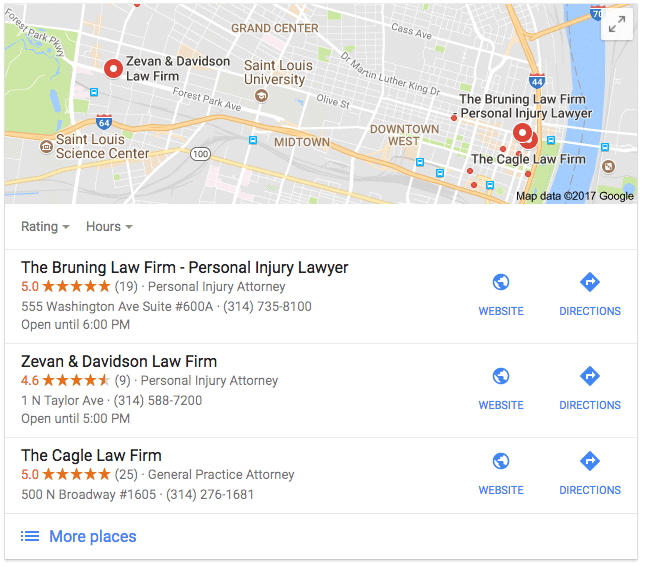
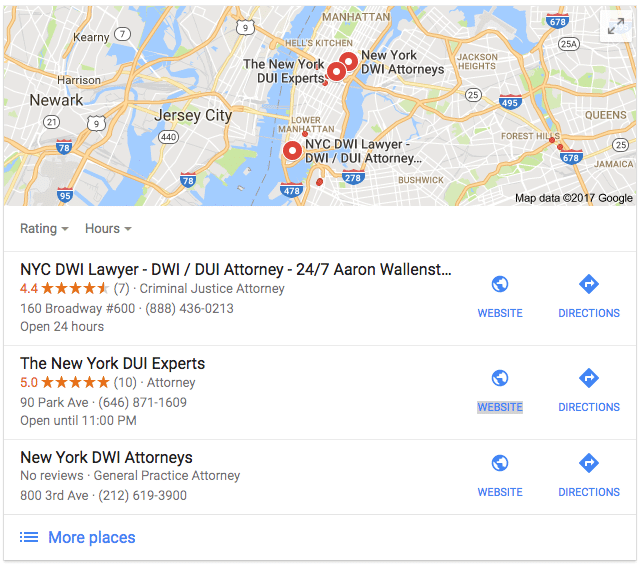
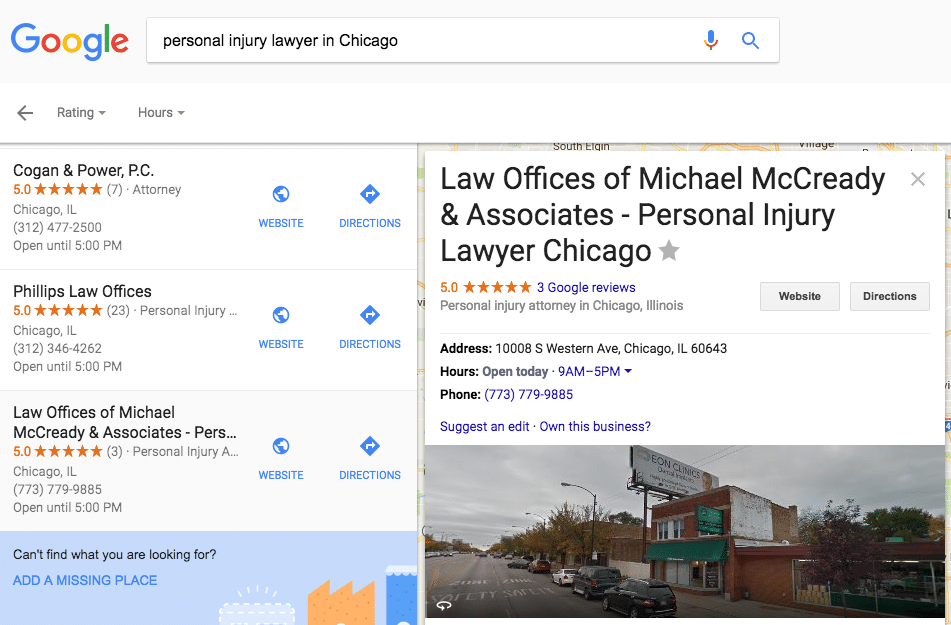
After you spot the listing that is keyword stuffing, click on it to see the full details.
After you click on the listing, visit the website to find out the legal business name.
Go back to the Google Maps listing where you will see a link that says "Suggest an Edit."
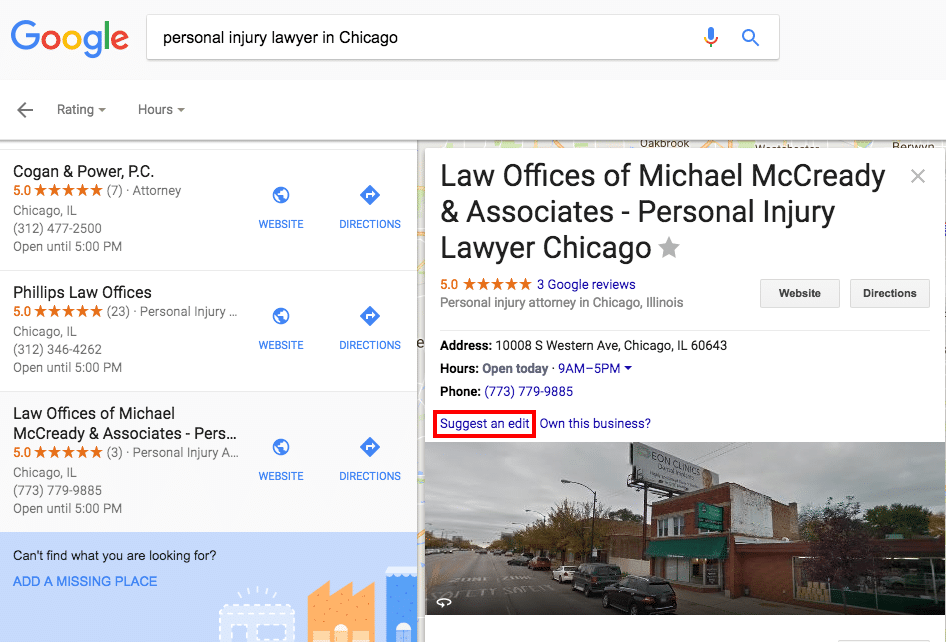
When you click on "Suggest an Edit," you will see an option to edit the business name. Change the business name of the firm to match the name advertised on their website.
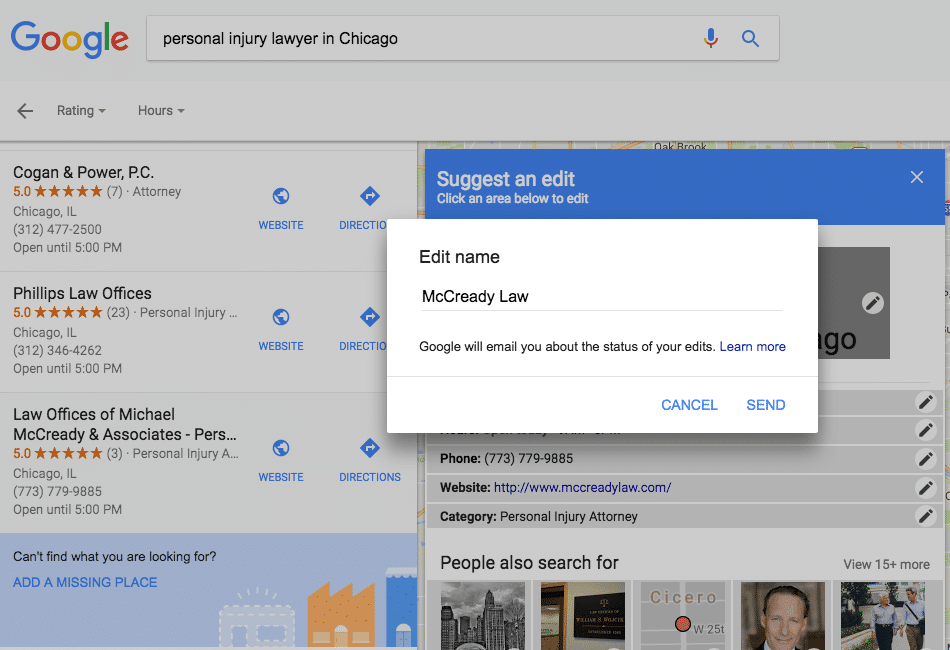
After you submit the change, you will see a note saying "Your edit is being reviewed." Google will also send a confirmation email acknowledging that they received your edit. Sometimes, the edit is instant. Sometimes, it takes a couple of weeks.
The business owner will be notified that their name has been edited. After that, if they are committed to a spammy title they could login and change it back. Keep track of your competitors and continue this process until it sticks.
Check Your Facts Before Changing a Listing
In many cases, the law firm with the spammy title is not purposely trying to abuse the system. In the examples above, the law firms may have hired a company that created the profile, someone in their office may have added the keywords as an experiment, or the profile may have been setup by a marketing company of which the firm has since severed ties.
Anytime you locate a profile that is keyword stuffing their title, you should edit it to help Google maintain fair and accurate local rankings. But always make sure you are providing accurate edits. The goal is not to punish, it is to level the field and make sure your competitors are following the same rules that you are adhering to.
Correcting listings accomplishes two things:
1) You are leveling the playing field for all law firms in the market.
2) You are helping these firms comply with the Guidelines for representing your business on Google which clearly state, "Including unnecessary information in your business name is not permitted, and could result in your listing being suspended."
Before you change a listing, you should make sure that the firm is actually violating Google's guidelines.
For example, at first glance this looks like a spammy title:
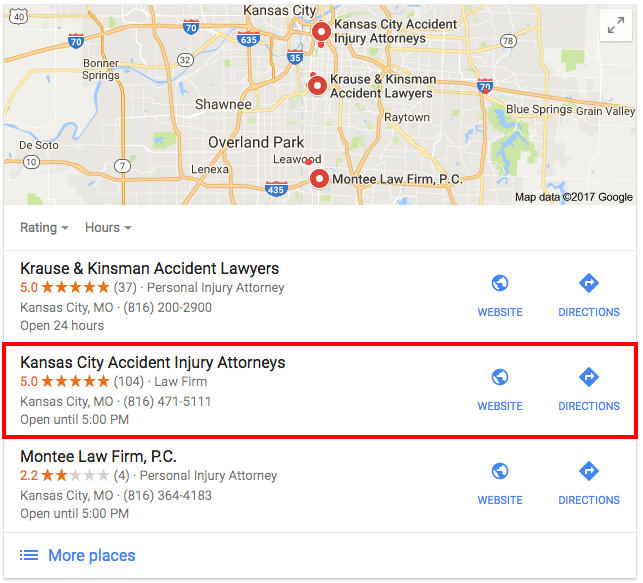
When we visited their website, we saw the same name in the logo, contact page and footer.
So we checked the Missouri Secretary of State's website and discovered that this was the law firm's legally registered name.

In this case, the firm is advertising their legally registered name which they are indisputably doing business as the name advertised on Google. This is not a violation of Google's terms.
However, not all states allow lawyers to use trade names. In New York for example, trade names are explicitly prohibited. So what do you do about the firms using trade names for their Google My Business title and logo, and website? In this case, they are complying with Google's rules but may not be complying with the attorney advertising guidelines.
If they are your direct competitor, it may be beneficial to reach out to them and offer a friendly reminder of the State Bar's advertising rules that govern both of your practices. Most lawyers do not want to risk running afoul with the State Bar so a reminder may get them to correct the issue on their own.
Cheating is not Winning
Law firms spend billions of dollars to compete and build their brand. An aggressive search engine marketing campaign can deliver leads, cases, increase exposure and improve your online reputation. When law firms use gimmicks and tricks that are against Google's guidelines to leap over the competitors that have taken the long ethical road, that is not winning, that is cheating.
If your competitors are rising above you by stuffing keywords in their name, use Google's suggest an edit tool to correct their listings and level the playing field.

